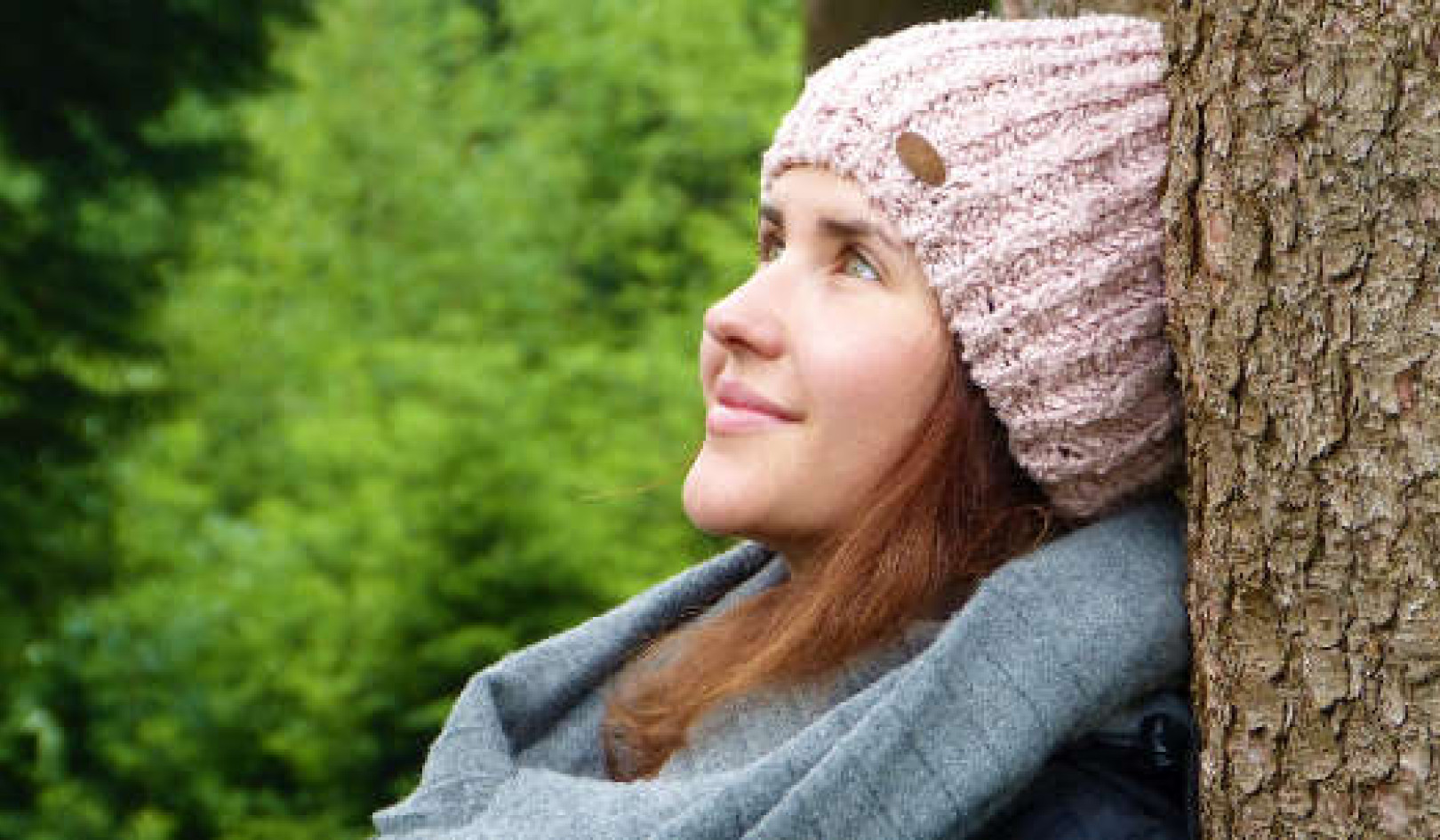
Trust is the foundation of love. Yet how do you build it? With monotonous regularity you hear your friends and colleagues say, "You can't trust anyone anymore."
Almost every popular magazine you open has an article about how couples cheat on each other. Yes, a majority of married men and women do have sex with someone beside their spouse at least once. And most of them keep it a secret. So what should you conclude? That you're crazy if you trust your partner? Absolutely not.
Ultimately you have to trust someone you love. When you doubt the truth of everything that your partner says, you end up feeling crazy. When you have sex and you have reason to believe your partner's been unfaithful, you feel turned off and upset. Mistrust can make you both physically and mentally sick. To have a healthy approach to life you must believe in someone and something.
Believe in Yourself
Romantic and sexual trust are difficult to establish because they involve both you and another human being. To build a foundation of trust you must lay the bricks at the bottom first. Before you can trust other people, you must choose to believe in yourself. This means knowing yourself, feeling comfortable with yourself, believing you will act in your own best interest, understanding you are capable of protecting yourself from danger, and having confidence in your good judgment.
If you already know, love, value, respect, and appreciate who you are, you probably have all five of these crucial attitudes. You can say to yourself, "I know you, I feel safe with you, I can take care of you, I can rely on you, I believe in you" — and mean it. You realize that your primary and fundamental loyalty is always to yourself. You know who you are. You have integrity toward yourself.
Integrity means wholeness. It requires spending time going within to discover and embrace the inner you. Self-knowledge takes courage. Sometimes you may not like what you find. For example, I realize that I have strong masculine traits. Although I am a petite, feminine-looking woman, I am also highly independent, motivated to achieve, and gifted with a strong sex drive.
I don't fit into the traditional stereotype of a woman. Knowing my own strengths and weaknesses enables me to believe in myself. I have confidence that I can establish trusting relationships with people who appreciate my uniqueness.
Trust Your Intuition
To believe in yourself also means to connect with your intuition. Trust is a feeling. You can't describe it exactly, but you know it when you have it. Your inner voice speaks to you and you listen: "This is a good person; trust him" or "Watch out for that person; she's dangerous". Even if other people tell you something opposite, you don't pay attention to anyone else's voice but your own. You have to honor what's inside. "Follow your gut", as a psychiatrist friend once said to me.
Once I answered a personal ad that began, "Lovable Lion. Well educated, passionate man seeks..." He and I spoke on the phone a couple of times and then met at a restaurant. It turned out that "Lovable Lion" (a Leo by horoscope) was tall, handsome, and charming, and we had a delightful dinner together. Afterward he asked if he could come over to my house for a drink. What should I do? I was extremely attracted to him, but I was also aware that he weighed twice as much as I did and could knock me down with one karate chop. My inner voice said loudly and clearly, "He's safe", so I trusted my instincts and agreed. As we walked up the steps toward my front door I told him about my hesitation. He replied, "Of course you trusted me. You wouldn't have invited me over otherwise." I've experienced this "instant trust" with other lovers as well.
Many couples intuitively trust in each other from the moment they meet. One pair experienced this trust so powerfully that he proposed marriage (and she accepted) on the first date — after they had been together less than six hours. Countless other couples have had sexual relations, confided deeply personal secrets, or been emotionally open right from the start. The seeds of trust germinate and grow when there is powerful initial bonding.
Trust is a Risk
You deliberately choose to trust. Just as you can decide to betray someone, you can also decide to give that person your loyalty. Sometimes it's difficult to know what's the right choice. In a world of romantic and sexual chaos, how do you know whom to trust and when? You don't want to follow your impulses blindly. Before you make a decision to trust someone you love, you ask for divine guidance, assess the facts, and — most important — follow your intuition.
Trust is a risk. You feel attracted to someone. What shall you do? Of course, you can always walk away. Or you can let down your guard and say, "I feel comfortable with you. I want to be sexual, to reveal my inner self, to be vulnerable, and to offer my unconditional love." Now you are taking a leap of faith. You don't know the outcome. When you decide to trust someone you open yourself up to joy — and to potential danger.
If you've been betrayed, you can either decide that you can't trust anyone or you can continue to take leaps of faith. If you choose the latter, then be sure to protect yourself. As Ravi Dykema, publisher of Nexus, a popular New Age newspaper from Boulder, Colorado puts it, "If you were about to get on a ship and you knew that there was a better than even chance it would sink, wouldn't you interview the captain first? Wouldn't you make sure the life boats were in shape and have a working life preserver with you just in case there was a disaster? The same is true in romantic relationships. If you know that there's a one out of two chance that your marriage will end in divorce, then it makes sense to protect yourself financially, sexually, and emotionally." Always have a fallback position just in case a betrayal happens.
Ultimately, trust requires you to move toward love and away from fear. You choose to stop being afraid of the consequences of trusting someone and to start connecting deeply with that person instead.
Why do we fear to trust? Because as soon as you let down your guard, you allow another person to gain control over your life. If you have sex with someone you give them the power to hurt you as well as to give you pleasure. They may infect you with a sexually transmitted disease, withhold their body, refuse to indulge in your sexual fantasies, or betray you. If you let them know exactly how much money you have, they may pressure you to share it with them. If you expose your emotional vulnerabilities, they may ridicule them, or put you down. Or if you share your fears with them, they may use this information to manipulate you. To give away control to someone else is an act of courage.
Trust Takes Time
So how do we ever manage to trust each other sexually or romantically? It doesn't happen in a day. Even when deep intuitive bonding takes place right from the start, you still have to stop, look, and listen. You can't create trust like you make instant coffee. It takes time.
Over a period of weeks, months, and years, you test your partner to find out if he is trustworthy. First there are small tests: "Will you stop flirting with that secretary at the office who has an obvious crush on you? It bothers me when you kiss her on the cheek in front of me." Then there are medium-sized tests: "When I work late, will you resist the temptation to go to a bar? If you do, will you go home alone?" And there are big tests: "Will you keep your agreement not to have sex with someone else when you're away on business trips? Will you tell me the truth if you do?" Each time you ask questions like these, trust will either grow or die — depending on how your partner answers them.
The problem with trust is that it's dynamic, not static. People change. Some become more trustworthy, and others become less so. The partner you married who always told you where he was, kept his promise to let you know when he was sexually restless, and shared his erotic fantasies freely may be different now. An addiction, a new philosophy of life, or a change in sexual preference may have moved him in a whole new direction. He may be telling white lies, black lies, or simply ignoring your questions completely. There are no guarantees.
Negotiating Trust
One way you can measure your partner's trustworthiness is to negotiate — and renegotiate — agreements about controversial sexual or romantic issues. For example, you may both decide not to openly flirt with other people while you are out for the evening together. If your partner repeatedly disregards your agreement, you renegotiate it. Perhaps it's unreasonable to expect both of you not to flirt at all; as long as no overt sexual overtures are made you can both play and tease a bit. If after several renegotiations you partner still keeps breaking agreements, you have a warning: Trust between the two of you is weak. It's a gift; take it as such.
Sometimes you don't find out that your partner is untrustworthy until the stakes are much higher. Andrea, a newspaper reporter, promised Bryan, a supermarket produce manager, that they would live together. She made this promise right after Christmas, and he believed her. But after several overnight visits, she changed her mind and decided that they should keep separate apartments; she realized that she needed her own space. Unfortunately, Andrea waited until Easter before she told Bryan about her change of heart. He was shocked at her betrayal: "I trusted Andrea that our relationship would go in the direction we had agreed upon and it didn't."
Trust and Respect Go Hand in Hand
One reason betrayal is so painful is that it indicates a fundamental lack of respect. I can only betray you if I don't value you, if I don't hold you in high esteem, if I don't honor you, and if I don't consider your feelings as important as mine. After each of my mega-betrayals I asked myself "Could he do this to me if he really respected and loved me?" Each time the answer was clearly "no". Conversely, you lose respect for someone who betrayed you. That's why it's difficult — if not impossible — to allow yourself to be emotionally vulnerable and to have satisfying sex afterward. You can't be intimate with someone you don't respect.
Two people who trust each other share their nonnegotiable issues. They tell each other what they will and won't put up with. Each will be inclined to respect the other's limits, not because they fear the repercussions of violation but because they are bonded by mutual respect. If they put their feelings into words they would say to each other, "You are very precious to me. I want our relationship to last. I will do my best to be worthy of your trust so you can be relaxed and confident with me." Or, as good friend of mine said to me recently, "Trust me that I will never deliberately do anything that would hurt you, be unloving, or be disrespectful."
Reprinted with permission from the publisher
Adams Media Corporation. http://www.adamsonline.com
Article Source
Betrayed! How You Can Restore Sexual Trust and Rebuild Your Life
by Dr Riki Robbins.
Click here for More Info or to Order This Book.
About The Author
Dr. Riki Robbins, Ph.D. is a sex and relationship consultant in private practice in California. She is the author of: "Betrayed! How You Can Restore Sexual Trust and Rebuild Your Life", "Negotiating Love: How Women and Men Can Resolve Their Differences", and co-author of "Let Me Count the Ways: Discovering Great Sex Without Intercourse".
























